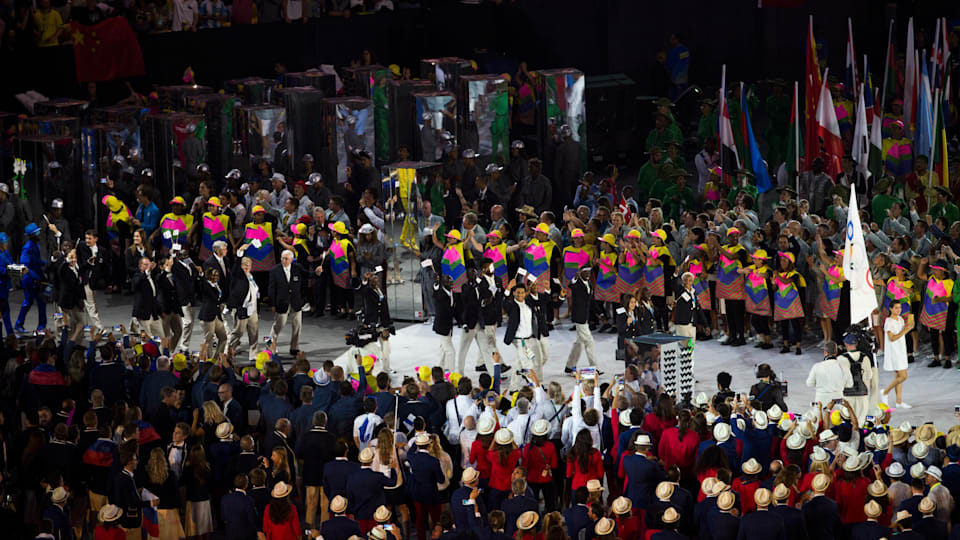Things you need to know about the IOC Refugee Olympic Team
What is the IOC Refugee Olympic Team? Why was it created and when? What is its mission? Who will be part of it? Find out all the answers.

The IOC Refugee Olympic Team will be represented at the Olympics for a second time in July 2021 when the Tokyo 2020 Games get underway after a year's delay.
It was first announced in 2015 and made its debut at the Olympic Games Rio 2016.
Some 29 athletes will be part of the Team in Japan, competing in many different sports, while reminding the world of the ongoing refugee crisis that has continued through the Covid-19 pandemic.
Here are some frequently asked questions about the IOC Refugee Olympic Team, and what you should know about its athletes.
What is the IOC Refugee Olympic Team? Why does it exist?
A refugee, according to the definition of the United Nations High Commissioner for Refugees (UNHCR), is "someone who has been forced to flee his or her country because of persecution, war, or violence".
The IOC Refugee Olympic Team and its athletes are a symbol of hope for refugees worldwide, serving to increase global knowledge and attention of the scale of the international refugee crisis.
The first team was originally announced in October 2015 by International Olympic Committee President Thomas Bach. In March 2016, the IOC Executive Board agreed to create the team to provide potential elite athletes, who were affected by the refugee crisis, a chance to qualify for and participate at the Olympic Games.
"By welcoming the team of Refugee Olympic Athletes (as the team was originally to be known) to the Olympic Games Rio 2016, we want to send a message of hope for all refugees in our world," President Bach said then.
At Tokyo 2020, the IOC Refugee Olympic Team will also be known by the French acronym EOR (équipe olympique des réfugiés).
How did the IOC Refugee Olympic Team start?
In 2016, after the IOC Executive Board approved the team's creation, 43 candidates were shortlisted, before a final list of 10 athletes was selected to take part at the Olympic Games in Rio.
All athletes who were considered had received UN refugee status.
"This will be a symbol of hope for all the refugees in our world, and will make the world better aware of the magnitude of this crisis," said President Bach after the team was announced in June 2016.
"It is also a signal to the international community that refugees are our fellow human beings and are an enrichment to society. These refugee athletes will show the world that despite the unimaginable tragedies that they have faced, anyone can contribute to society through their talent, skills and strength of the human spirit."
How did the IOC Refugee Olympic Team do at the last Olympic Games?
Ten athletes – two swimmers, two judo players, a marathon runner, and five track athletes – represented the Refugee Olympic Team in Rio.
Two of them, Popole Misenga and Yusra Mardini, won a heat or contest.
Misenga, the team's Closing Ceremony flagbearer, won his opening judo bout to reach the round of 16 in his under-90kg category.
Mardini won her 100m butterfly heat but did not advance to the semi-finals. However, her heat win was widely celebrated as showcasing the power of sport.
Who is part of the IOC Refugee Olympic Team?
There are 29 athletes on the IOC Refugee Olympic Team for Tokyo 2020 in 2021. Their names were revealed on 8th June. You can watch the announcement here.
Members of the team are supported by IOC Refugee Athlete Scholarships, which were launched after the success of the first refugee team in 2016.
They also have United Nations refugee status while living in various host countries.
These athletes have been training for the past few years with the support of Olympic Solidarity, in hopes of making it to Tokyo 2020.
The Tokyo 2020 refugee athletes will take part in 12 sports: athletics, badminton, boxing, canoeing, cycling(road), judo, karate, shooting, swimming, taekwondo, weightlifting, and wrestling.
Find more on the full list of athletes named to the team here.
